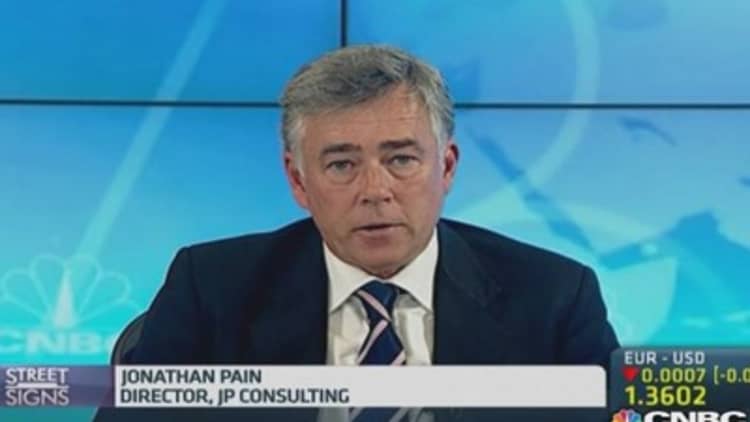Chinese authorities' use of targeted stimulus measures deepened risks in the housing market, according to Societe Generale.
Analysts have grown increasingly concerned about the impact of declining house prices on China's economy, especially as property represents 30 percent of the overall economy.
"Such a selective policy approach is hardly good news to the housing sector," said Societe Generale in a note published on Thursday, referring to the government's mini stimulus moves.
Read MoreBet on China? This luxury retailer says no hurry
"There is no room for complacency when it comes to housing sector risk," they added.
So far stimulus has targeted weaker areas of the economy - a stark contrast to the far-reaching policies of 2008-2009, which critics argue contributed to excessive credit growth.
However, because recent measures were smaller and more selective, they stabilized credit growth rather than boosting it and the housing market is suffering as a result, SocGen said.
Read MoreChina to become 2nd largest equity market by 2030
"The housing sector downturn, as suggested by very recent price data, is deepening further and very likely to be protracted, in the absence of another credit boom," the analysts said.
Earlier this week, an independent survey by private data provider Soufun showed house prices in 100 major Chinese cities fell 0.5 percent on month in June, the second consecutive month of declines.
The survey also showed that new apartments offered deeper discounts, as developers are eager to boost sales in order to liquidate inventories - a worrying sign for future housing construction and investment.
Read MoreChina trade picture improves, but data underwhelm
SocGen acknowledged that the stimulus moves boosted growth prospects, however, especially infrastructure spending. It now sees the economy growing 7.5 percent in the second quarter, up from its previous forecast of 7.1 percent, and in line with the government's annual target. But the bank warned that higher infrastructure spending is not entirely positive as it detracts cash from the housing market, exacerbating risks there.
"This lift in short-term growth does not mean lower risk going forward. Surging infrastructure investment growth with steady total credit growth means that the funding for other sectors, especially housing, continues to dwindle," they added.

The risk of a meaningful correction in China's housing prices looms large, Societe Generale said, although the timing, duration and depth of the correction hinges on credit growth.
"We do not see a sizable reacceleration of credit growth on the near-term horizon... Hence, we think that the housing sector is going to see a more protracted and deeper correction that might last for two years," they added.
Other analysts told CNBC that directly linking recent stimulus moves with a slowing house market is a stretch.
Read MoreChina inflation in line; unlikely to sway policy
"We can always find relationships, because if you stimulate one sector the money is not flowing to the other then obviously one could argue that," said Jian Chang, China economist at Barclays.
Chang said Barclays is also concerned about the housing market, but believes the government is prepared to tolerate further weakness for the time being.
"I think government's intention is to tolerate some further correction in the property sector....This is because housing affordability deteriorated last year and the property sector has been taking away a lot of the resources in the economy," she added.


